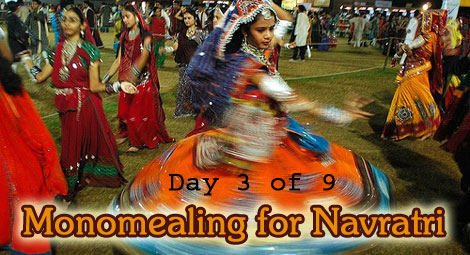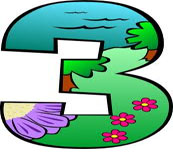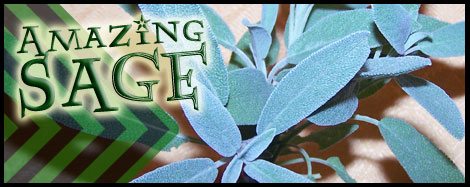
Jim here... Since we posted Wendi's two-part series on pasta-making techniques (part 1, part 2) last week, I thought I'd follow up with an additional novel use for the spiralizer -- super-delicious, blazingly fast, ultra-low-fat sweet potato chips! We've done some really great things with sweet potatoes before. (Anyone signed up as a member of the Pure Jeevan family has likely already received our prized sweet potato pancake recipe.) But, these chips are amazing because they satisfy that unmistakable urge for crunchy, healthy snacks -- and in record time. Friends, if you have a dehydrator and sweet potato on hand, you could literally be enjoying these things in under three hours. So let's get going!
As Wendi demonstrated in the videos last week, you can easily make "rounds" using the spiralizer by simply making a vertical slice throughout your vegetable prior to placing it on the spiralizer. So, if we were looking down at the sweet potato, the cut (which goes all the way down the length of the vegetable) would look like this:
Read more: Super-Delicious, Blazingly Fast, Ultra-Low-Fat Sweet Potato Chips!

It's day three and all is going okay. I seem to have a bit more energy since it's not all being sapped trying to digest complex meals. The last time I did mono mealing, I received countless emails from Pure Jeevan members who were concerned I was doing something unhealthy. Eating simply for nine days, however, is not unhealthy.
 Did you know the body doesn't need a full range of vitamins and minerals at each and every meal? Somehow many of us were taught that each meal needs to be a complete balance of vitamins, minerals, proteins, fats, carbohydrates and that just isn't the case. What the body needs is a well-rounded diet, overall, to be in a balanced state. If, over the span of a month or two, you've consumed a variety of fruits, vegetables, nuts, seeds, and sprouts you will find that you've met just about all of your nutritional needs.
Did you know the body doesn't need a full range of vitamins and minerals at each and every meal? Somehow many of us were taught that each meal needs to be a complete balance of vitamins, minerals, proteins, fats, carbohydrates and that just isn't the case. What the body needs is a well-rounded diet, overall, to be in a balanced state. If, over the span of a month or two, you've consumed a variety of fruits, vegetables, nuts, seeds, and sprouts you will find that you've met just about all of your nutritional needs.

Well, we've always found the herb SAGE to be delightful in so many ways. That's why we've grown it here and elsewhere for years. Such a lovely, fragrant, sturdy, resilient herb, it's truly one of the easiest plants to communicate with -- and YES!, it truly IS a meaningful dialogue when you step out into the garden and sit among a patch of sage. All you need to do is listen carefully, and sage will speak its sage herbal wisdom to you.
I was wondering how sage came to be known as "sage" -- when all of the sources I had handy simply listed its technical name, salvia, along with its common name. Enter the great Wiki for an answer:
Read more: Please Tell Everyone: "I Read Some *Sage* Words at Pure Jeevan Today"
Today in Pure Jeevan's home we are celebrating one of the best days of the year---KDcat's birthday!? How she has blossomed over the years...
?


A while ago, I received an email asking whether I had any thoughts on how old or young a person needs to be in order to benefit from a raw food diet. Yes. Yes, I do have thoughts on that! Lots of thoughts! ... Here goes:
The easy answer, of course, is that people of ALL ages can (and should) benefit from raw foods. I can assert with confidence that, for most people, increasing your intake of raw fruits and vegetables will likely bring about positive changes to your health, regardless of your age, dietary habits, or current state of health. (Naturally, reducing or eliminating the "bad" things is also paramount.)
I've received countless emails over the past few days, thanks to Kevin Gianni's video (below) about the potato pancakes I made for he and Annmarie when they were visiting. In many of the emails you were thanking me for the free eBooks, but some of you had questions (and even some concerns) about sweet potatoes. I've answered you all individually, but I thought it might be a good idea to spend some time discussing the sweet potato a little more. Here's the vid, and then I'll include some of the questions I was asked:

You know about raw foods, I know about raw foods, and we both know people who know about raw foods. It seems like more and more people know about this lifestyle than ever before -- and that's absolutely true! But, it's still true that, on the whole, the average person on the street knows almost nothing about it. As such, if you're a raw foodist, you often find yourself in situations in which you're explaining it to people. (Obviously, as raw foods bloggers, we're more than happy to do so, of course!)
Amid all of these explanations to new friends and new readers, it's not too uncommon to hear people scoff at the idea in one way or another. Common objections include things like:
This recipe is an adaptation of one from "Rawvolution", by Matt Amsden. As of this point in time, "Rawvolution" is my favorite recipe book. Most of the recipes are high in sodium and fat, but very satisfying for those who are used to eating cooked foods.

Egg-less Egg Salad

Last night, we watched a movie called Barney's Version which, among many other things, touched on the issue of Alzheimer's (or dementia). (It also touched on the issue of painfully awful movie titles, in my opinion.) But, I have to admit: Movies like that (or, even being around people affected by this) cause me to seriously look at my own life and reflect upon how I might be doing in terms of preventing not just Alzheimer's, but all major diseases.
My grandmother had severe dementia, and we witnessed the full progression of this awful condition for many years. I felt awful for her and readily admit that it scared the hell out of me to know that a formerly sharp, witty human being could end up this way. If you've never been around it, trust me: You do not want this for yourself or anyone.
Correction: I said "Lenuria" a number of times in this video, but it's actually Lunaria! In any case, we wanted to share some additional description for this plant. Here's a quick paragraph from Wikipedia:
Lunaria is a genus of flowering plants in the family Brassicaceae, native to central and southern Europe. It includes two species, Perennial honesty and Annual honesty. They are widely grown as ornamental plants in gardens, and have become naturalised in many temperate areas away from their native habitat. In the language of flowers, it means Sincerity and Forgetfulness. ...The common name "Honesty" arose in the 16th century, and it may be due to the translucent seed-pods which are like flattened pea-pods and borne on the plant through winter. In South-East Asia, it is called the "Money Plant," and in the United States as "Silver dollars," because its seed pods have the appearance of silver coins.



